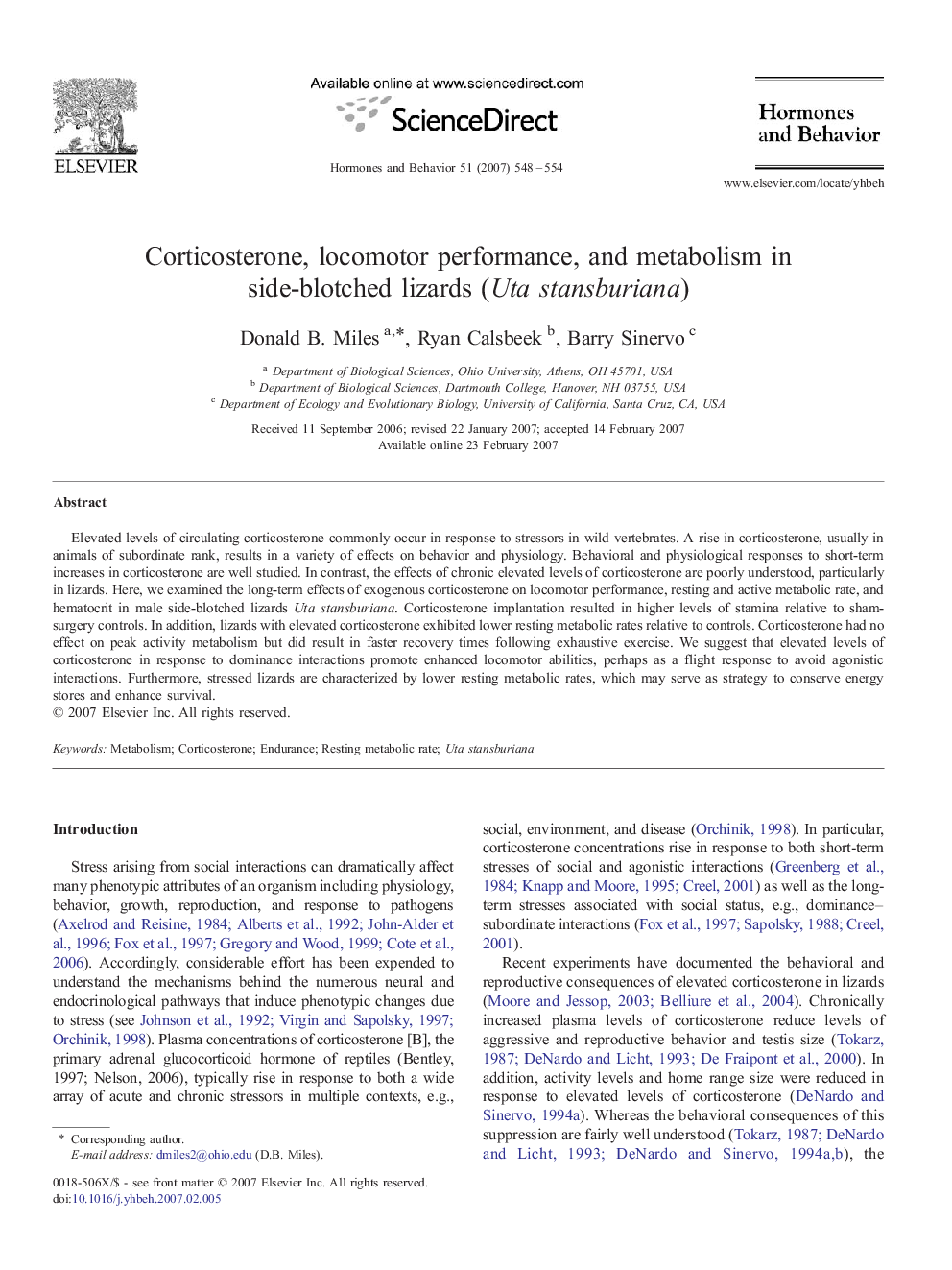| Article ID | Journal | Published Year | Pages | File Type |
|---|---|---|---|---|
| 323823 | Hormones and Behavior | 2007 | 7 Pages |
Elevated levels of circulating corticosterone commonly occur in response to stressors in wild vertebrates. A rise in corticosterone, usually in animals of subordinate rank, results in a variety of effects on behavior and physiology. Behavioral and physiological responses to short-term increases in corticosterone are well studied. In contrast, the effects of chronic elevated levels of corticosterone are poorly understood, particularly in lizards. Here, we examined the long-term effects of exogenous corticosterone on locomotor performance, resting and active metabolic rate, and hematocrit in male side-blotched lizards Uta stansburiana. Corticosterone implantation resulted in higher levels of stamina relative to sham-surgery controls. In addition, lizards with elevated corticosterone exhibited lower resting metabolic rates relative to controls. Corticosterone had no effect on peak activity metabolism but did result in faster recovery times following exhaustive exercise. We suggest that elevated levels of corticosterone in response to dominance interactions promote enhanced locomotor abilities, perhaps as a flight response to avoid agonistic interactions. Furthermore, stressed lizards are characterized by lower resting metabolic rates, which may serve as strategy to conserve energy stores and enhance survival.
